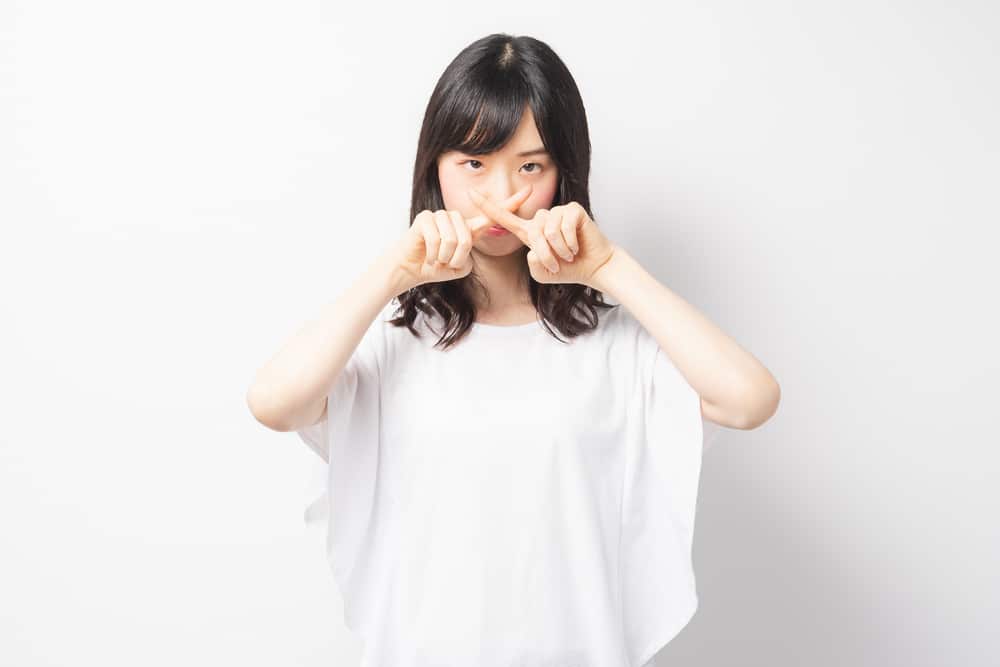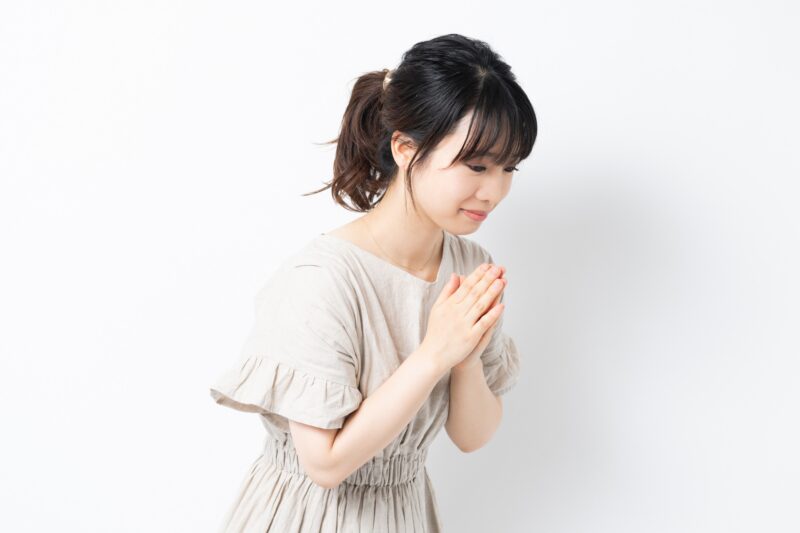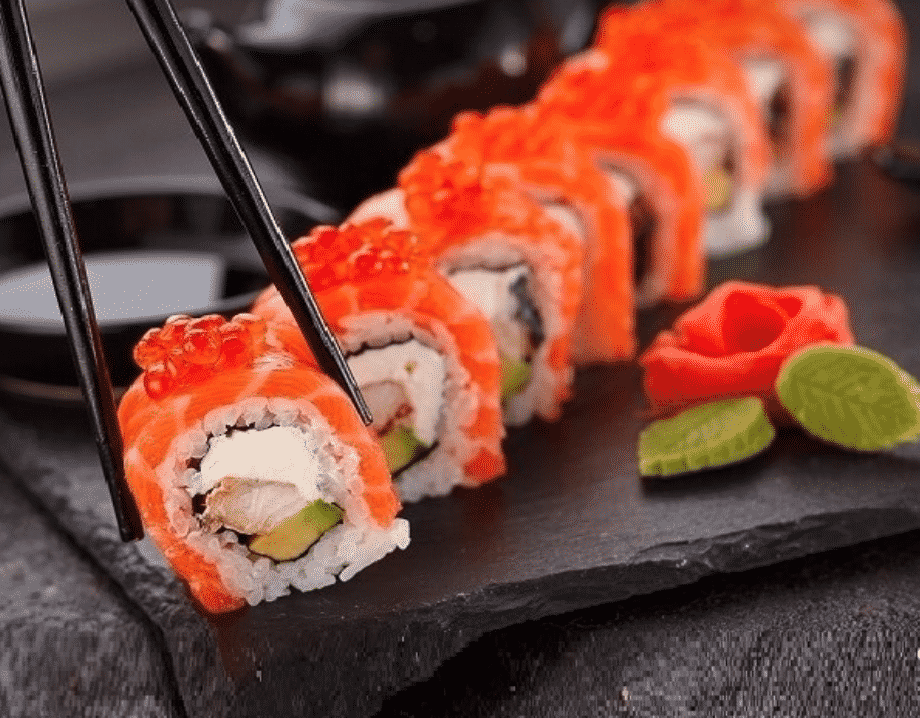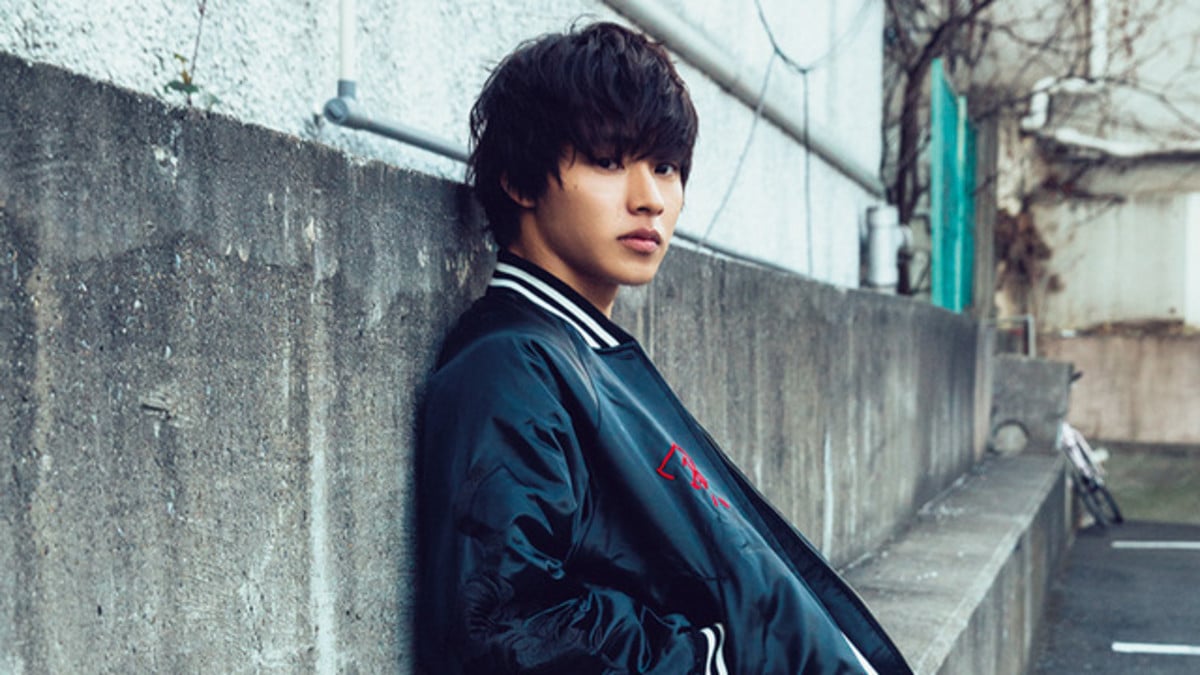To State Wordsphrases or Sentences Again for Emphasis;often Used in Advertising
Practice you desire to offset speaking Japanese right this second?
Start with these 250 crucial survival phrases, everyday conversational words and more.
Just click on a word or phrase to hear its pronunciation!
Contents
- Bones Japanese Phrases
- Maxim Aye and No in Japanese
-
- Maxim "Yes" in Japanese
- Proverb "No" in Japanese (While Saving Face)
- Basic Japanese Question Words
- Please, Thank You and Apologies in Japanese
- Japanese Phrases to Express "I Don't Empathise"
- Survival Japanese: Vocabulary for Travel
- Common Japanese Words for Casual Conversations
- Japanese Pronouns
- Numbers and Quantities in Japanese
-
- Counting to x (and Beyond) in Japanese
- Common Japanese Counters
- Useful Words for Japanese Numbers
- Fourth dimension Phrases in Japanese
- Japanese Phrases for Grabbing a Seize with teeth
- Japanese Phrases for Social Gatherings
- Shopping in Japanese
- Japanese Slang
- The Nigh Common Japanese Nouns
-
- People
- Time
- Directions
- Places
- Vehicles
- Food & Drink
- Other Useful Terms
- Japanese Goodbyes: Farewell, Friend. Allow'southward Keep in Touch.
Basic Japanese Phrases

おはようございます "ohayou gozaimasu" — Good morning
The casual version is "ohayou." In a workplace, someone greeting a colleague for the beginning time that twenty-four hours might use this phrase—fifty-fifty if the clock reads 7 PM.
こんにちは " konnichiwa" — Hello / practiced afternoon
Konnichiwa can be used any time of day as a general greeting, just it's almost commonly used between eleven AM and v PM.
久しぶり (ひさしぶり) " hisashiburi" — Information technology's been a while
Use this phrase when you're greeting someone you haven't seen in a while.
お名前は何ですか?(おなまえは なんですか?) " o namae wa nan desu ka?" — What's your name?
This is a polite style to inquire someone for their proper name. The more informal version is: " O namae wa?" — Your proper name is…?
…です " …desu" — I am… / It is…
Desu is a copula (a word that links the subject of a judgement to its complement), but information technology might be easiest for beginners to but remember of it every bit the equivalent of the English give-and-take "to be." Unlike "to be," desu stays the same regardless of the subject.
Hither are some examples: "Tomu desu" — I'm Tom. "Atsui desu" — Information technology's hot/I'thou hot. "Osoi desu" — You lot're late!
好きです (すき です) " suki desu" — I like it
You can say what you like and add "…ga suki desu. For example, I have a huge sweet tooth, so I'd say: "Okashi ga suki desu." — I like sweets.
好きではありません (すきでは ありません) "suki dewa arimasen " — I don't like it
If something'southward but not to your liking, use this phrase.
いいですよ " ii desu yo" — It's adept
Call up of this phrase as a gentle style to say, "It'due south all skilful." Y'all'll oftentimes also hear "ii yo" (specially from females).
ダメです (だめ です) " dame desu" — Information technology's no good
To say something is "no practiced," you can only say "matriarch," or "dame da" (both are casual).
日本語で話しましょう (にほんごで はなしましょう) " nihongo de hanashimashou" — Permit's talk in Japanese
Native Japanese speakers are oft all too happy to help yous practice your language skills with them!
もう一度言ってください (もういちど いって ください) " mou ichido itte kudasai" — Delight say it again
A useful phrase for whatever learner to know.
Download: This weblog post is available as a convenient and portable PDF that you lot can have anywhere. Click hither to get a copy. (Download)
Saying Aye and No in Japanese

Saying "Yes" in Japanese
The basic word for "yes" in Japanese is hai, but there are several ways to express it either verbally or with expressions:
はい "hai"
そう "sou"
うん "un"
ああ "aa"
ええ "ee"
もちろん "mochiron" — Of course
そうです "sou desu" — That'south right
いいですよ "ii desu yo" — Okay
The Japanese use "aizuchi," which are uncomplicated words or gestures that all hateful "Yes" to indicate you're listening. These include phrases likesou, un, aa or ee.
Alternatively to 1-word affirmatives, you can saymochiron, sou desu orii desu yo to mean "that'due south correct."
Another style to say "yes" is with non-verbal cues like nodding your head up and down or giving a thumbs upwards.
Saying "No" in Japanese (While Saving Face up)
While there are several terms for saying aye in Japanese, proverb "no" is much trickier. The bones word for "no" is "iie," only at that place are more polite ways to express "no" to safeguard the listener's feelings:
いいえ "iie"
ううん "uun"
いやー "iya"
だめ "dame"
ちょっと… "chotto…"
If yous utilise chotto, remember to trail off at the end, as yous're basically saying "it'south a picayune…"
In business settings, two simple phrases to convey "no" without saying "no" are:
難しいです 。 (むずかしい です。) "muzukashii desu" — It'south difficult.
考えておきます。 (かんがえて おきます。) "kangaete okimasu" — I'll think nearly it.
While not outright saying "no," they limited a refusal to the listener without sounding boorish.
There are several non-verbal ways to express "no." Rubbing the dorsum of the neck, making an "Ten" with both artillery or even taking in a deep breath all mean "no."
Basic Japanese Question Words

Knowing some of the essential Japanese question words will become a long way toward getting your questions across to Japanese speakers.
何 (なに) "nani" — What
Nani tin can exist used alone or in a judgement. When placed before desu, the discussion nani drops its -i and becomes, simply, nan. For instance: "Kore wa nan desu ka?" — What is this?
どこ "doko" — Where
Doko is used when asking for a location, like this: "Toire wa doko desu ka?" — Where is the toilet? If you don't know the word for the place you're looking for, another helpful option is pointing to it on a map and asking "Doko desu ka? " — Where is information technology?
誰 (だれ) "dare" — Who
You lot can inquire who someone is past simply request "Cartel?" If yous're referring to a specific person, advertizing it before cartel: "Kanojo wa dare desu ka?" — Who is she?
いつ "itsu" — When
Itsu can exist used alone, depending on the context, or in a sentence. For example, if a friend tells you the sequel of your favorite evidence is out before long, yous might ask "itsu?"
どうして "doushite" — Why
If you need to ask politely, say it as "Doushite desu ka?" If you lot're with friends or family, you tin can use the casual form "Nande," instead.
なぜ "naze" — Why
This is pretty similar to doushite, only a chip more formal. Naze is also used to enquire the reason backside something, while doushite has a dash of "how" to information technology.
いくら "ikura" — How much
While out and well-nigh in Japan, y'all may spot something that catches your eye. Ikura is the question discussion for "How much?"
どちら "dochira" and どれ "dore" — Which one
When choosing between two things, use dochira. If choosing from more than three things, use dore.
Please, Thank Y'all and Apologies in Japanese

The following phrases and expressions will aid yous ease into a conversation with anyone and everyone you interact with.
ありがとうございます "arigatou gozaimasu" — Cheers
The friendlier, more casual way to say cheers is arigatou. Yous'll also see its abbreviation, "ari," pretty frequently on Japanese message boards. A friend might only cheers with "doumo" — thanks
どういたしまして " douitashimashite" — You're welcome
Although this is technically the right response to "thank you," it's rarely used these days in casual Japanese conversation. Opt instead for the post-obit phrase!
問題ないです (もんだい ない です) "mondai nai desu" — No trouble
This phrase is used pretty much the same way equally it is in English.
ください "kudasai" — Please (requesting)
The word kudasai is used when making requests every bit in these examples: "Isoide kudasai." — Delight hurry, or " Koohii o kudasai? " — Can I delight have a java?
どうぞ "douzo" — Please (offering)
Usingdouzo is like saying, "Please go alee." You tin can use it when ushering someone through the door before you, or offer a coworker some delicious snacks, for example.
お疲れ様です (おつかれさま です) "otsukaresama desu" — Give thanks you lot for your efforts
This expression is often said when you, or someone else, finishes their piece of work as a parting sentiment. You lot can think of it equally maxim, "that'south a wrap for the day."
失礼します (しつれい します) "shitsurei shimasu" — Excuse me (for my rudeness)
Another expression usually heard in the office, shitsurei shimasu is used when you lot're leaving a room. It'south like to saying "Sorry to have bothered you lot." Yous can also cease a formal or polite phone call with this phrase.
すみません "sumimasen" — Excuse me, I'm sorry
Sumimasen is often used to say "Excuse me" (like if you need help getting directions ) and "Deplorable" (similar when you accidentally nudge someone). It can too be said as a "thank you lot" when you've troubled someone (Remember: "Thanks for letting me put y'all out").
ごめんなさい " gomen nasai" — I'one thousand sorry
Amid family members, friends and in coincidental situations, gomen nasai replaces sumimasen when saying distressing. Yous tin use the less formal gomen and gomen ne among those who are close to you.
Japanese Phrases to Limited "I Don't Understand"
There are multiple means to express "I don't understand" in Japanese. Here are the most of import ones!
分かりません (わかりません) "wakarimasen" — I don't understand (formal)
The near formal phrase that works in any situation is wakarimasen. If y'all're around friends, y'all can utilise the coincidental variant, wakaranai.
もう一度言ってください (もう いちど いって ください) "mou ichido itte kudasai" — Please say that again
If y'all've misheard your friend or colleague, yous tin can enquire them to repeat what they said by using this phrase: "Sumimasen, mou ichido onegai shimasu." — Alibi me, one more fourth dimension delight.
ゆっくりお願いします (ゆっくり おねがい します) "yukkuri onegai shimasu" — Slowly, Please
This is the polite way to ask someone to echo what they said at a slower step.
聞こえませんでした (きこえません でした) "kikoemasen deshita" — I didn't hear that
Use this phrase to allow someone know you didn't catch what they said.
Survival Japanese: Vocabulary for Travel

These handy phrases will give you lot what you lot need to go around Japan and, in case of an emergency, ask for aid.
すみません、地下鉄/駅はどこですか?(すみません、ちかてつ/えきはどこですか?) "sumimasen, chikatetsu/eki wa doko desu ka" — Excuse me, where'south the subway/station?
Trains and subways are the primary mode of transportation in Japan, so you'll need to use this to figure out where y'all're supposed to board.
この電車は…駅に止まりますか?Does this train stop at…station?
If you're on a bus, you tin can ask: "Kono basu wa…ni ikimasu ka?" — Does this omnibus go to…?
タクシーのりばはどこですか?Where is the taxi platform?
Although expensive, taxis are a handy fashion of getting where you lot need.
…まで連れて行ってください。Delight accept me to…
If you're going to your hotel, a restaurant or the identify you agreed to meet your friends, employ this phrase to tell the taxi commuter where you want to get.
予約をしたいのですが。(よやくをしたいのですが) "yoyaku wo shitainodesuga" — I'd like to make a reservation.
If you've made a reservation in accelerate, yous can say: "Yoyaku shiteimasu. " — I have a reservation.
チェックアウトは何時ですか?(ちぇっくあうとはなんじですか?) "chekkuauto wa nanji desu ka" — What time is checkout?
Be certain to apply this phrase so you know when you demand to leave your room!
道に迷ってしまいました。(みちにまよってしまいました。) I'1000 lost.
Uh-oh, looks similar you got a scrap turned around! Not to worry, a friendly passerby will be sure to help you out if you use this phrase.
たすけて! "tasukete" — Help!
This is used for emergencies, similar in an accident or you're in existent danger. To ask for everyday assist, y'all can say: "Tetsudatte kuremasen ka?" — Could you lot help me?
警察/救急車を呼んでください。(けいさつ/きゅうきゅうしゃをよんでください。) "keisatsu/kyuukyuusha wo yondekudasai" — Delight call the police/ an ambulance.
Hopefully yous'll never demand to utilise this, but it's important to know just in instance. Here's a useful note: the emergency numbers in Japan are 119 for an ambulance and 110 for the police.
Common Japanese Words for Coincidental Conversations

Want to sound similar a native when you lot know minimal Japanese? At that place are a few mutual phrases you lot can utilize with friends in coincidental conversations.
よろしくね "yoroshiku ne" — Nice to meet you lot (coincidental)
The more formal version of this phrase is "Yoroshiku onegai shimasu." — Nice to meet you.
どうしたの? "doushita no?" — What's wrong?
If your friend seems troubled, yous tin can casually inquire "Doushita no?" to detect out what'due south wrong.
やばい "yabai" — Awful or absurd
While talking, your friend may mention they take an important test or engagement. Use yabai and depending on the context, information technology tin can mean "Awful" or "Cool."
頑張って (がんばって) "ganbatte" — Do your best
This elementary give-and-take means either "adept luck" or "do your best." In more formal situations, you'd say: "Ganbatte kudasai" — Practise your best (formal)
おめでとう! "omedetou!" — Congrats!
The formal variant is: "Omedetou gozaimasu" — Congratulations.
マジで? (まじ で?) "maji de?" — Really?
You can express your surprise with this casual phrase.
うそー! "uso!" — No way!
This is another way to limited surprise, which literally ways "lie!"
Japanese Pronouns
Japanese has a wide variety of pronouns you tin utilize, helping you make your sentences more direct when you're referring to yourself, your friend or your friend'southward boyfriend.
私 (わたし) "watashi" — I (all genders)
Watashi is the go-to in polite situations. Information technology's sometimes pronounced watakushi for extra formality, and some female person speakers may shorten it to atashi in casual settings.
僕 (ぼく) "boku" — I (commonly male)
Boku is generally used by men and boys when they're among friends. Nowadays, some girls apply boku, equally well, which gives off an air of tomboyish-ness.
俺 (おれ) "ore" — I (male)
While boku is sometimes used by girls, ore is an exclusively male pronoun. Information technology gives off a flake of a crude image, then it'southward only used among close friends in casual situations.
自分 (じぶん) "jibun" — Myself / yourself / themselves
Jibun is used to refer to a sense of self. It can likewise accept a variety of forms, like jibun no for one'south own (something), and jibun de (by yourself). It's also a more polite way of referring to someone else.
あなた "anata" — You
Anata translates to "you," but it's not used in the fashion it'south used in English. Well-nigh of the time, Japanese omits "you" altogether, favoring a person'southward name instead. It tin as well be used as a term of endearment between couples.
君 (きみ) "kimi" — You
Kimi is largely used to talk to someone of lower condition than yourself, such as a boss talking to their employees. It's likewise used to add some pizzazz to writing, such as in the hit movie "Kimi no na wa" — "Your Name."
彼 (かれ) "kare" — He / him
While the Japanese language does favor using a person's name over second or third person pronouns, using kare is perfectly okay. Plus, kare can exist used to refer to someone's boyfriend.
彼女 (かのじょ) "kanojo" — She / her
Same as kare, only for women. In the same way as kare, k anojo can likewise be used to refer to a girlfriend!
…たち "tachi" — "…And company" (pluralizes pronouns)
To turn a pronoun into a plural, just add together -tachi. For example, "nosotros" tin can be expressed equally "watashi tachi," "you" can be "kimi tachi," a group of women tin exist"kanojo tachi"and "Sasuke and his friends" becomes "Sasuke tachi."
これ "kore" — This
Used to refer to something close to the speaker.
それ "sore" — That
Used to refer to something close to the listener.
あれ "are" — That (over there)
Used to refer to something far from both the speaker and the listener.
Numbers and Quantities in Japanese

Counting to x (and Across) in Japanese
Like English, Japanese has ii forms of counting: ordinal and cardinal. A primal number counts how many of something in that location are (i, ii, three), while an ordinal number denotes the lodge or placement of something (first, second, third).
You'll larn the ordinal numbers every bit you lot study, but knowing the numbers one through x is a adept starting point for whatever learner. Here they are in Japanese, along with a few extras:
一 (いち) "ichi" — one
ニ (に) "ni" — 2
三 (さん) "san" — 3
四 (し) "shi" — four
五 (ご) "go" — 5
六 (ろく) "roku" — six
七 (しち) "shichi" — vii
八 (はち) "hachi" — eight
九 (きゅう) "kyuu" — nine
十 (じゅう) "juu" — ten
百 (ひゃく) "hyaku" — hundred
千 (せん) "sen" — 1000
Mutual Japanese Counters
Counters are small words added later on numbers to bespeak the blazon of item beingness counted.
There are many counters and yous'll take to go familiar with them as y'all study Japanese, but here are some key terms to become you started.
…人 (にん) "nin" — People
…個 (こ) "ko" — Minor objects (such as soap, fruit, handbags)
…枚 (まい) "mai" — Flat objects (such as paper, CDs, clothing)
…つ "tsu" — Misc. objects (orders of food, ideas; can also exist used as a substitute for other counters)
…本 (ほん) "hon" — long cylindrical objects (such equally pencils, sticks or umbrellas)
…冊 (さつ) "satsu" — books
Useful Words for Japanese Numbers
いくつ "ikutsu" — How many…?
This is a general give-and-take to ask "how much" or "how many" of a numerical amount. For example: "Okashi wa ikutsu hoshii desu ka" — How many snacks practise you want? It can also be used to ask someone'southward age: "Oikutsu desu ka?"— How old are you lot?
何… (なん) "nan" — How many…?
Nan is a more specific mode of asking how much of something there is. It works past combining nan with a counter, such as: "nanbon" — How many long cylindrical objects?; "nannin" — How many people?; "nanmai" — How many sheets?
多い (おおい) "ooi" — many
For example: "Kono eki wa hito ga ooi desu" — There are a lot of people at this station.
少ない (すくない) "sukunai" — few
For instance:"Kono menyuu wa ryori ga sukunai desu" — This bill of fare doesn't take a lot of dishes.
たくさん "takusan" — a lot
Takusan is similar to ooi. The notable difference being that takusan can function as a noun, adjective or adverb, while ooi is only an describing word. For example: "Kooen ni hana ga takusan arimasu." — There are lots of flowers in the park.
少し (すこし) "sukoshi" — a trivial
Fun fact: Sukoshi is where the term "skosh" comes from! Possibly you've heard your parents or grandparents utilise it? Here's an case of it in apply: "Koohii ni sato wo sukoshi onegaishimasu" — A little carbohydrate in my java, please.
Time Phrases in Japanese

These easy Japanese phrases volition teach you how to enquire for the fourth dimension and empathize the answers people will give you lot.
今何時ですか? (いまなんじですか?)"ima nanji desu ka" —What time is it?
If you want to brand sure you lot get to your train on time, this phrase is vital. In casual situations, proverb "Ima nanji?" will work just fine.
いつですか?"itsu desu ka" — When is it?
For example: "Eiga wa itsu desu ka" — When's the moving picture?
どのぐらいかかりますか?"dono gurai kakarimasu ka"— How long does it take?
When asking casually, you can say dono gurai kakaru. Replies will often usekakarimasu in their ending, significant "it volition take (this amount of time.)"
何時から何時までですか?(なんじからなんじまでですか?)"nanji kara nanji made desu ka" — From what time until what time…?
You tin can get specific: "Ano mise wa nanji kara nanji fabricated eigyou shiteimasuka" — What are that store's operating hours? Or cut information technology short: "Ano mise wa nanji kara nanji made desu ka" — Literally, "That store is from what hour until what hour?"
…時です (じです)"…ji desu" — It's … o'clock.
This plus a number is all y'all need to tell the time! For example: "Ichiji desu" — It'southward 1 o'clock.
…時間です (じかんです) "… jikan desu" — … hours.
Later asking how long that movie'due south going to last, or how long you'll take to wait, you'll go this response. "Nijikan desu" — Two hours.
…分です (ふんです) "…pun/fun desu" — … minutes.
Same as"…jikan desu,"just for minutes. 分 will sound different depending on the number that comes before it, with variations like: "ippun" —one infinitesimal, "nifun" —two minutes, "sanpun" — iii minutes.
Japanese Phrases for Grabbing a Bite

Okay, now that we've gotten the formalities out of the way, information technology's time to talk about what's really important: food!
お腹が空いています (おなかが すいて います) "onaka ga suite imasu" — I'thou hungry
This literally means your stomach has become empty. Some variations are onaka ga suita (less formal), onaka hetta, hara hetta (masculine) and onaka ga pekopeko (onomatopoeia that ways your stomach is growling).
まだ食べていません (まだ たべて いません) "mada tabete imasen" — I haven't eaten still
For a more casual version, go ahead and say mada tabeteinai.
メニュー、お願いします (めにゅー、おねがい します) "menyuu, onegai shimasu" — Delight bring me a carte
You lot tin can as well opt for the more than formal version: "Menyuu, onegai dekimasu ka?" — May I have the carte du jour?
それは何ですか? (それは なんですか?) "sore wa nan desu ka" — What'southward that?
You lot can use this phrase to inquire what things are—perfect for getting new words!
これを食べてみたいです (これを たべて みたい です) " kore o tabete mitai desu" — I'd like to try this
See something that's caught your eye on the menu? You tin can annotate on it with this!
…をください "…o kudasai" — I'd like…
State any you lot'd like to social club, and follow information technology with …o kudasai. For example: "Koohii o kudasai" — I'd like a coffee, please. That's my forenoon catchphrase!
…がありますか?"…ga arimasu ka" — Exercise yous have…?
As a reply, you'll but hear arimasu.
…付きですか? (…つき ですか?) "…tsuki desu ka" — Does it come with…?
If yous want to know if certain foodstuffs are included with your guild, use this to ask away. For example: "Furaido poteto tsuki desu ka?" — Does it come with chips?
…が食べられません (…が たべられません) " …ga taberaremasen" — I can't eat…
This is a practiced phrase for vegetarians, vegans and other people with dietery restrictions to larn. For case, niku" is "meat" and sakana is "fish," so if you're on a strict veg diet, you can say: "Niku to sakana ga taberaremasen" — I can't consume meat and fish.
…アレルギーがあります (…あれるぎーが あります) "…arerugii ga arimasu" — I'g allergic to…
Land whatever you're allergic to and add this phrase to the end to inform your listener of your allergies. Simply to exist rubber rather than sorry, yous can ask "…ga haitte imasu ka?" which means, "Are/Is there any … in it?" For example:"Tamago ga haitte imasu ka?" — Are in that location any eggs in it?
おいしいです! "oishii desu!" — Information technology's delicious!
Oishii is a wonderful fashion to say something tastes great. If you're just eyeballing a piece of cake, then oishisou, meaning "Information technology looks delicious," could exist useful, too. A coincidental and "manly" way to say something is delicious is "umai!"
まずいです "mazui desu" — It'southward terrible
Hopefully, you lot won't need to utilise this phrase!
お腹が一杯です (おなかが いっぱい です) "onaka ga ippai desu" — I'm total
Is your friend trying to make you endeavour one more than dish? Say this to let him know you can't eat some other bite!
お勘定/お会計、お願いします (おかんじょう/おかいけい、おねがい します) "okanjou/okaikei, onegai shimasu" — Cheque, please
If you want to divide the beak, you can opt for one of these phrases: "Warikan ni shite kudasai" — Carve up the check, please; "Betsubetsu de onegaishimasu" — We'll pay separately, delight.
いただきます "itadakimasu" — Permit'south dig in
This is used before excavation into your meal, similar to "Bon ambition."
ごちそうさまでした "gochisousama deshita" — Thanks for the meal
After you lot've finished that scrumptious bowl of squid-ink noodles, you can end your meal with gochisousama deshita. Similaritadakimasu, this phrase is a fixture at every meal.
Japanese Phrases for Social Gatherings

Show your friends and colleagues yous know how to have fun with these phrases during social gatherings.
食べましょう (たべましょう) "tabemashou" — Let'southward consume
When planning a fun solar day out with friends, there are a few casual phrases to use when discussing plans. If yous determine to have lunch, state tabemashou!
飲みましょう (のみましょう) "nomimashou" — Let's drink
Y'all can too propose grabbing a potable past using this phrase.
行きましょう (いきましょう) "ikimashou" — Let's become
Once your plans are decided, it'southward time to head out past maxim this phrase.
やったー! "yatta" — Yay!
Are you excited that yous've made plans to meet upwards? This word, expressed enthusiastically, will get that bespeak beyond.
乾杯! (かんぱい!) "Kanpai" — Cheers!
In one case the political party has begun, it's essential to clink your glasses together and say kanpai! You say this phrase before drinking, not afterwards.
嬉しいです (うれしい です) "Ureshii desu" — I'grand happy
Coming together up with friends is a fun experience. Express your joy at your gathering with this phrase, before or afterwards you've had a few drinks.
お代わりをください (おかわりを ください) "okawari o kudasai" — Refill, please
In one case you've started drinking and want a refill, land okawari o kudasai.
大丈夫です (だいじょうぶ です) "daijoubu desu" — I'm fine
This is a polite mode to respectfully say "no," such as when you're done drinking for the night.
Shopping in Japanese

With the streets chock with food stalls and vendors, the high-end boutiques lining Ginza and the ultra-cool and unique gift shops, there's no way to avert shopping while traveling through Nihon.
いらっしゃいませ "irasshaimase" — Welcome
You volition hear a chorus ofirasshaimase! when you lot enter a shop. Afterward a day or ii in Japan, you're guaranteed to be hearing information technology in your sleep, too.
これは何ですか?(これは なんですか?) "kore wa nan desu ka" — What is this?
This phrase will piece of work no affair what y'all're asking about.
これは何というものですか? (これは なんという もの ですか?) "kore wa nan to iu mono desu ka" — What'due south this called?
Similar to the phrase above.
これはいくらですか?" kore wa ikura desu ka" — How much is this?
If the detail y'all want doesn't take a price tag on information technology, simply enquire the store clerk this question.
ちょっと高いです (ちょっと たかい です) "chotto takai desu" — It'south a flake expensive
If you haven't started your adventure of learning Japanese adjectives, and so some essential shopping vocabulary is: " yasui" — cheap, piece of cake; "takai" — expensive, high; "takakunai" — cheap.
他の色がありますか? (ほかの いろが ありますか?) "hoka no iro ga arimasu ka" — Do you accept another color?
Peradventure that shirt would await amend in bluish rather than red. Use this to inquire away.
それを頂きます (それを いただきます) "sore o itadakimasu"— I'll take it
Say this, and the clerk will exist overjoyed they've made a sale!
クレジットカードは使えますか? (くれじっとかーどは つかえますか?) "kurejitto kaado wa tsukaemasu ka" — Tin I use my credit card?
If y'all'd like to use a traveler's check, then replace kurejitto kaado with: "Toraberaazu chekku" — traveler'due south check. Your Suica and Pasmo cards, which are rechargeable cards you can utilise on Japanese trains, tin can also exist used to pay for taxis or your groceries at select stores. You can ask: "Suika wa tsukaemasu ka?" — Can I utilise my Suica?
包んでいただけますか? (つつんで いただけますか?) "tsutsunde itadakemasu ka" — Can I have information technology gift wrapped?
Perfect for wrapping upward those souvenirs for your friends and family back home!
Japanese Slang

When you're making friends, you'll hear tons of these terms going back and forth. Many slang terms are written in katakana, which marks them as existence casual words.
And so impress your new pals by jumping right in with these common Japanese slang terms!
ウケる (うける) "ukeru" — Funny, hilarious
Used in situations when something funny happens. Say your friend Kentaro made a great joke—past proverb ukeru , you'll let him know he struck your funny bone.
超 (ちょう) "chou" — Super
This word is used to add accent, like the words "super," "actually" or "very." Y'all could say, for case, that something is chou ukeru, or very funny.
ダサい (ださい) "dasai" — Lame
This i's usually used to refer to things that are uncool or not fashionable.
キモい (ださい) "kimoi" — Gross
Kimoiis a contraction of the words "kimochi" — feeling, and "warui" — bad. It's used when you see something disgusting, or that gives you the creeps.
ガチ (がち) "gachi" — Totally, really, seriously
G achi implies that something actually took place, or was really every bit intense as the speaker claims.
半端ない (はんぱない) "hanpa nai" — Crazy, insane
Hanpa nai ways that something is crawly or insane, but in a practiced way, similar an epic roller coaster ride.
The Most Common Japanese Nouns
How'south this for some study motivation: knowing the 100 most mutual Japanese words means you understand 50% of the language! By establishing a core vocabulary, you'll have a solid foundation on which to build your house of Japanese knowledge.
To assistance get y'all to that halfway bespeak, here are 100 of the most mutual Japanese nouns, divided into handy categories.
People
名前 (なまえ) "namae" — Name
人 (ひと) "hito" — Person
男の人 (おとこのひと) "otoko no hito" — Human being
女の人 (おんなのひと) "onna no hito" — Woman
お母さん (おかあさん) "okaasan" — Mother
お父さん (おとうさん) "otousan" — Father
お姉さん (おねえさん) "oneesan" — Older sister
お兄さん (おにいさん) "oniisan" — Older brother
おじさん "ojisan" — Uncle
おばさん "obasan" — Aunt
お爺さん (おじいさん) "ojiisan" — Grandfather
お婆さん (おばあさん) "obaasan" — Grandmother
息子 (むすこ) "musuko" — Son
娘 (むすめ) "musume" — Daughter
友達 (ともだち) "tomodachi" — Friend
学生 (がくせい) "gakusei" — Student
先生 (せんせい) "sensei" — Teacher
医者 (いしゃ) "isha" — Doctor
警察官 (けいさつかん) "keisatsukan" — Constabulary officer
Time
今日 (きょう) "kyoo" — Today
明日 (あした) "ashita" — Tomorrow
昨日 (きのう) "kinoo" — Yesterday
朝 (あさ) "asa" — Forenoon
昼 (ひる) "hiru" — Afternoon
夜 (よる) "yoru" — Night
時間 (じかん) "jikan" — Time
前 (まえ) "mae " — Before
今 (いま) "ima" — At present
後 (あと) "ato" — After
月曜日 (げつようび) "getsuyoubi" — Monday
火曜日 (かようび) "kayoubi" — Tuesday
水曜日 (すいようび) "suiyoubi" — Wednesday
木曜日 (もくようび) "mokuyoubi" — Thursday
金曜日 (きんようび) "kinyoubi" — Friday
土曜日 (どようび) "doyoubi" — Sat
日曜日 (にちようび) "nichiyoubi" — Sunday
午前 (ごぜん) "gozen" — A.M.
午後 (ごご) "gogo" — P.M.
日 (ひ) "hi" — 24-hour interval
週 (しゅう) "shuu" — Week
月 (がつ) "gatsu" — Month
年 (とし) "toshi" — Yr
Directions
上 (うえ) "ue" — To a higher place
下 (した) "shita" — Beneath
左 (ひだり) "hidari" — Left
右 (みぎ) "migi" — Right
中 (なか) "naka" — Inside
外 (そと) "soto" — Outside
北 (きた) "kita" — North
南 (みなみ) "minami" — Southward
西 (にし) "nishi" — Westward
東 (ひがし) "higashi" — Due east
Places
所 /場所 (ところ/ばしょ) "tokoro/basho" — Place
家 (いえ) "ie" — House
部屋 (へや) "heya" — Room
学校 (がっこう) "gakkou" — School
病院 (びょういん) "byouin" — Infirmary
店 (みせ) "mise" — Shop
ホテル (ほてる) "hoteru" — Hotel
空港 (くうこう) "kuukou" — Drome
駅 (えき) "eki" — Station
バス停 (ばすてい) "basutei" — Double-decker stop
入り口 (いりぐち) "iriguchi" — Entrance
出口 (でぐち) "deguchi" — Exit
町 (まち) "machi" — Town
都市 (とし) "toshi" — City
Vehicles
車 (くるま) "kuruma" — Car
電車 (でんしゃ) "densha" — Train
地下鉄 (ちかてつ) "chikatetsu" — Subway
自転車 (じてんしゃ) "jitensha" — Bike
飛行機 (ひこうき) "hikouki" — Aeroplane
タクシー (たくしー) "takushii" — Taxi
バス (ばす) "basu" — Passenger vehicle
Nutrient & Drink
食べ物 (たべもの) "tabemono" — Food
ご飯 (ごはん) "gohan" — Repast
朝ご飯 (あさごはん) "asagohan" — Breakfast
昼ご飯 (ひるごはん) "hirugohan" — Lunch
夕食 /晩ご飯 (ゆうしょく/ばんごはん) "yuushoku/bangohan" — Dinner
肉 (にく) "niku" — Meat
魚 (さかな) "sakana" — Fish
果物 (くだもの) "kudamono" — Fruit
野菜 (やさい) "yasai" — Vegetable
飲み物 (のみもの) "nomimono" — Beverage
お茶 (おちゃ) "ocha" — Tea
水 (みず) "mizu" — Water
コーヒー (こーひー) "koohii" — Coffee
ビール /生 (びーる/なま) "biiru/nama" — Beer
Other Useful Terms
服 (ふく) "fuku" — Dress
靴 (くつ) "kutsu" — Shoes
テレビ (てれび) "terebi" — Goggle box
電話 (でんわ) "denwa" — Phone
携帯電話 (けいたいでんわ) "keitai denwa" — Cell phone
映画 (えいが) "eiga" — Motion-picture show
ゲーム (げーむ) "geemu" — Game
値段 (ねだん) "nedan" — Price
箸 (はし) "hashi" — Chopsticks
本 (ほん) "hon" — Book
犬 (いぬ) "inu" — Dog
猫 (ねこ) "neko" — Cat
鳥 (とり)"tori" — Bird
Japanese Goodbyes: Adieu, Friend. Let's Go along in Touch.

Maxim goodbye is never easy, especially if you're saying information technology to a loved one or new friend with whom you lot've shared your travel experiences. Let them know how much you intendance with one of the following farewells:
メアドを教えてもらえますか?(めあどを おしえて もらえますか?) "meado o oshiete moraemasu ka" — Could I have your east-mail address*?
If that's a little too long to memorize, yous can ask: "Meruado o oshiete" — Can I become your east-postal service address? (Literally, "teach me your e-mail")
手紙書くよ (てがみ かくよ) "tegami kaku yo" — I'll write y'all letters
Perchance you're into snail mail service! It's a great hazard to practise writing Japanese.
着いたら、電話します/メールします (ついたら, でんわ します/めーる します) "tsuitara, denwa shimasu/meeru shimasu" — I'll call/email you when I arrive
Let your new friends know yous're condom when yous touch down in your home land.
またすぐに来ますよ (また すぐに きますよ) "mata sugu ni kimasu yo" — I'll be back before long
After your trip to Nippon, I'm sure you'll desire to head back as soon as possible!
遊びに来てくださいね (あそびに きて くださいね) "asobi ni kite kudasai ne" — Come up visit me
If yous sincerely want someone to visit you, you lot can add this additional phrase:"Watashi no ie dewa, itsumo anata o kangei shimasu yo!" — You're always welcome in my home!
じゃあ、また! "jaa, mata!" — See you!
If you're not going to be waving your handkerchief in a heartfelt adieu (where "sayounara" — cheerio would be more appropriate), then "jaa, mata!" is a great way to say "meet you!" You can also use these options: "dewa mata" (slightly more formal), "jaa ne," "jaa mata ashita ne" (meet y'all tomorrow).
お元気で (おげんきで) " o genki de" — Take intendance
If "see yous" is a trivial likewise coincidental for you, and so y'all tin can sayo genki de, instead. This literally ways "exist healthy" and can exist used to say, "Adept luck!"
And at that place you have it! With these phrases, you lot'll be able to make small talk with new friends, or show others that y'all're sincerely interested in learning Japanese.
Just by incorporating a few of these phrases into daily life or conversation, you'll be sure to hear 日本語が上手ですね! (にほんごが じょうず ですね!) "nihongo ga jouzu desu ne!" — You're good at speaking Japanese!
Download: This blog postal service is available every bit a convenient and portable PDF that you can accept anywhere. Click hither to get a copy. (Download)
Source: https://www.fluentu.com/blog/japanese/easy-japanese-words-phrases/

0 Response to "To State Wordsphrases or Sentences Again for Emphasis;often Used in Advertising"
Post a Comment